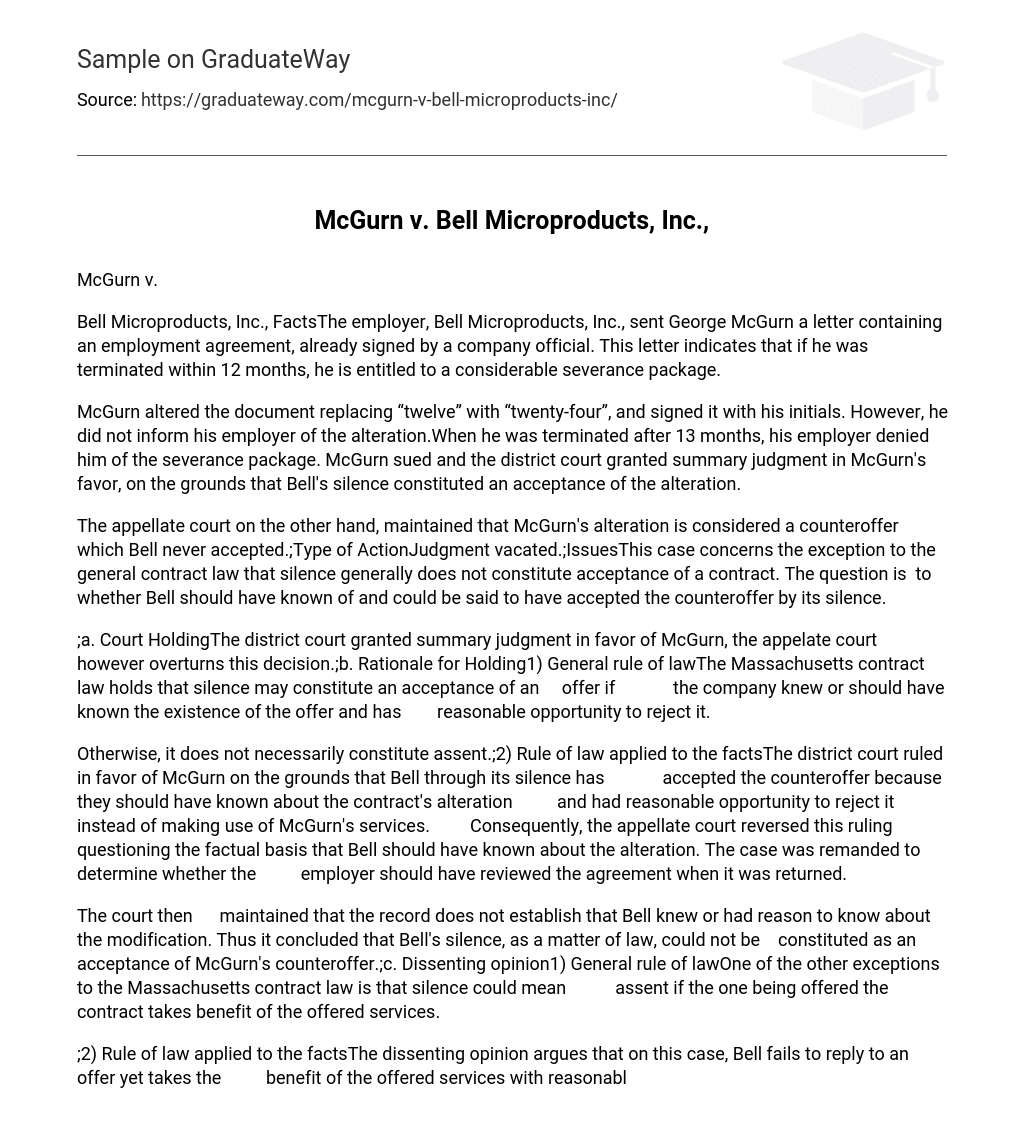McGurn v.
Bell Microproducts, Inc., FactsThe employer, Bell Microproducts, Inc., sent George McGurn a letter containing an employment agreement, already signed by a company official. This letter indicates that if he was terminated within 12 months, he is entitled to a considerable severance package.
McGurn altered the document replacing “twelve” with “twenty-four”, and signed it with his initials. However, he did not inform his employer of the alteration.When he was terminated after 13 months, his employer denied him of the severance package. McGurn sued and the district court granted summary judgment in McGurn’s favor, on the grounds that Bell’s silence constituted an acceptance of the alteration.
The appellate court on the other hand, maintained that McGurn’s alteration is considered a counteroffer which Bell never accepted.;Type of ActionJudgment vacated.;IssuesThis case concerns the exception to the general contract law that silence generally does not constitute acceptance of a contract. The question is to whether Bell should have known of and could be said to have accepted the counteroffer by its silence.
;a. Court HoldingThe district court granted summary judgment in favor of McGurn, the appelate court however overturns this decision.;b. Rationale for Holding1) General rule of lawThe Massachusetts contract law holds that silence may constitute an acceptance of an offer if the company knew or should have known the existence of the offer and has reasonable opportunity to reject it.
Otherwise, it does not necessarily constitute assent.;2) Rule of law applied to the factsThe district court ruled in favor of McGurn on the grounds that Bell through its silence has accepted the counteroffer because they should have known about the contract’s alteration and had reasonable opportunity to reject it instead of making use of McGurn’s services. Consequently, the appellate court reversed this ruling questioning the factual basis that Bell should have known about the alteration. The case was remanded to determine whether the employer should have reviewed the agreement when it was returned.
The court then maintained that the record does not establish that Bell knew or had reason to know about the modification. Thus it concluded that Bell’s silence, as a matter of law, could not be constituted as an acceptance of McGurn’s counteroffer.;c. Dissenting opinion1) General rule of lawOne of the other exceptions to the Massachusetts contract law is that silence could mean assent if the one being offered the contract takes benefit of the offered services.
;2) Rule of law applied to the factsThe dissenting opinion argues that on this case, Bell fails to reply to an offer yet takes the benefit of the offered services with reasonable opportunity to reject them and reason to know that they were offered in the expectation of an agreed compensation. The dissenting opinion maintains that on such circumstances, it would be unjust for Bell to benefit for those services without letting McGurn know that it had no intention of paying the compensation that McGurn is expecting to receive.;d. Legal analysisThe appelate court’s decision highlights the need for employers to review all employee agreements after being signed to ensure that no modifications are made.





